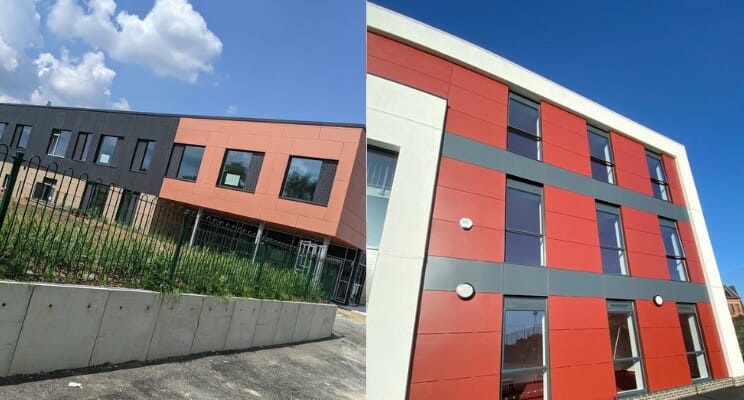
Modular buildings offer education projects a more reliable route to adhering to important deadlines and this is one of the reasons why we’re seeing greater adoption of modern methods of construction (MMC) in this sector.
The last couple of years are testament to the fact that construction projects can be delayed by unforeseen circumstances. Delays to any project have a negative effect on clients, contractors, and relationships between the entire workforce; but overrunning schedules on an education sector project have an even wider impact…
Not only do delays contribute to potential cost increases for the client, but missing an education project deadline could also mean disturbance and noise during school hours, inconvenience to students and staff, disruption to teaching schedules, and classes having to take place in unsuitable accommodation.
What are some of the challenges faced by education sector projects?
Schools and educational institutions are subject to some quite specific challenges in comparison with those in other areas of construction, with restrictions around deliveries to site, and clear limitations on the amount of time available for work to be carried out. Major work is often undertaken during school holidays and ongoing maintenance work at weekends, periods which have specific start and end times.
Traditional methods of construction have timing problems built in. The involvement of many different trades and subcontractors on site can cause delays, with knock-on effects on each other and the schedule, plus restrictions caused by site preparation and groundworks having to be carried out before construction can start.
It’s no surprise, then, that MMC is well suited for school projects:
- It’s all in the timing
The more structural work that can be done offsite, the less noise, disruption, and inconvenience there will be for students and staff to put up with. As modular units can be put together while site preparation and groundworks are going on, the amount of time construction teams are onsite is reduced, increasing the chance that projects will be delivered on time.
In addition, where poor weather on site can slow a traditional build down, construction of modular units in the factory can go ahead whatever the heavens throw at us.
- Building control benefits
Modular units comply with the same building regulations as traditional buildings but, as multiple pods can be inspected at the same time and at the same stage of construction, many problems can be dealt with in the clean and protected environment of the factory.
- Environmental considerations and sustainability
There are clear advantages to using modular construction in educational buildings when it comes to reducing carbon emissions and improving energy efficiency through effective insulation.
The fact that modular construction can help ensure consistency and durability of buildings also lowers the need for ongoing maintenance during school time – something which can’t just be done as and when.
It’s also worth noting that the requirements for teaching spaces may change over time. Quick to construct, modular school buildings are also adaptable and well suited in terms of flexibility to accommodate future changes of use, school expansion or the need to move facilities to a different site.
- Material considerations
In addition to complying with specific building regulations for school buildings, educational projects often have unique requirements, and the intended purpose for classrooms can influence the exact design and specification of particular rooms.
For example, acoustic properties for music rooms or facilities for hearing-impaired students will have specific requirements for acoustic performance which can be inbuilt in the factory, so no additional treatments are needed on site.
This was a key challenge at Addington Valley Academy where we worked alongside main contractor Kier Construction on a project where it was ‘imperative that the classrooms would have the highest level of acoustic performance to enhance the learning experience of the students.’
Building an education for Britain
With the UK’s primary and secondary-school populations on the rise, ‘schools are required to grow extremely quickly in order to keep up with the increasing demand for places year-on-year.’
Modular construction specialists Darwin Group, who we have worked with on a number of education projects, including Kendrick School in Reading and the Marie Weller School in Towcester – are clear on the advantages of MMC: ‘Using our modern methods of construction, we can deliver inspirational teaching and learning environments, cost effectively, safely, on time and with minimal disruption to staff and pupils on-site…in under half the time that traditional construction would take.’
Providing modern, quality buildings that meet the needs of a growing population, along with the beneficial effect that an increased turnround is likely to have on the bottom line, MMC certainly offers opportunities for the education sector.
If you have a project you would like to discuss with us, or to talk to us about our experience installing SFS, please contact us on 01268 744 199 or email [email protected]
